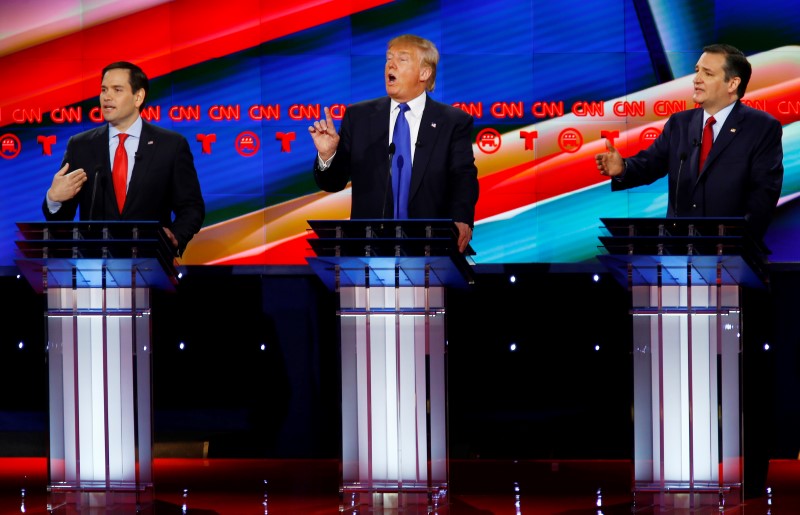By Ana Isabel Martinez
MEXICO CITY (Reuters) - Mexico's government is planning a diplomatic push to counter aggressive rhetoric against its nationals in the U.S. election race, a senior official said on Tuesday, after calls by Donald Trump for a massive wall to divide the two nations.
Republican presidential candidates Marco Rubio and Ted Cruz have also proposed building a wall along the U.S.-Mexico border, but it is Trump who has taken the hardest line against the United States' southern neighbor.
The Republican front-runner has labeled Mexican migrants as drug runners and rapists, proposed mass deportations of undocumented immigrants and said Mexico is "killing" the United States with cheap labor.
Francisco Guzman, Mexican President Enrique Pena Nieto's chief of staff, on Tuesday said it was time for the government to push back against these negative images.
Mexico plans to use its extensive network of U.S. consulates to highlight the benefits of U.S.-Mexican relations to the U.S. economy and the American people, Guzman said.
The initiative will include forums with U.S. business people, politicians and public figures to get Mexico's opinions heard.
"Mexico’s positioning in the U.S. election debate is not generally adequate," Guzman told a group of foreign correspondents. "It doesn’t reflect the constructive relationship between Mexico and the U.S."
Trump rolled up a series of primary wins on Tuesday and looked set to take command of the Republican nomination battle.
The Mexican government has up till now avoided a direct confrontation with the billionaire real estate developer, though the country's top diplomat has called his policies and comments "ignorant and racist."
Former Mexican presidents Vicente Fox and Felipe Calderon have publicly condemned Trump, both comparing him to Adolf Hitler.
"We're not going to involve ourselves in the (U.S. presidential) debate. We don't want to polarize, but we do want to have a positive institutional relationship as we've had in the past," Guzman said.
"The U.S.-Mexico relationship requires more bridges and fewer walls. The isolationist solution is not a solution at all," he added.
The United States is Mexico's top trade partner, the destination for about 80 percent of its exports, in addition to sharing many cultural and family links.
To promote stronger ties, Mexico's government plans to meet with the final contenders for the White House once the two major parties have selected their candidates, Guzman said.

"Any candidate, above all if he wants to project himself forward, has to, in my opinion, see the relationship with Mexico not as a threat but as an opportunity," he said.